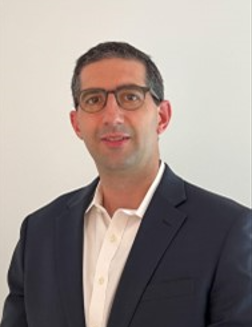Dr Zachary Solomon: The Path to Becoming a Cardiothoracic Surgeon
Dr Zachary Solomon: The Path to Becoming a Cardiothoracic Surgeon
Blog Article

Cardiothoracic surgery exactly like those performed by Dr Zachary Solomon has long been at the front of medical improvements, combining accuracy, talent, and engineering to take care of conditions of the heart, lungs, esophagus, and different organs in the thorax. Within the last several years, this field has observed progressive inventions and methods that have considerably improved patient outcomes, healing occasions, and overall quality of life, in accordance with Doctor Zachary Solomon.
The Development of Cardiothoracic Surgery
Cardiothoracic surgery has come a long way from their early days. The first effective center function, performed in the late 19th century, set the foundation for an developing specialty marked by rapid advances. By the mid-20th century, the development of the heart-lung unit allowed surgeons to execute complex open-heart procedures. Today, the discipline continues to grow with ongoing study and scientific innovations.
Minimally Intrusive Surgery
One of the most groundbreaking breakthroughs in cardiothoracic surgery may be the arrival of minimally intrusive techniques. These procedures tend to be performed through little incisions, lowering injury to the human body and marketing quicker recovery. Some crucial minimally unpleasant methods include:
• Robotic-Assisted Surgery
• Video-Assisted Thoracoscopic Surgery (VATS
• Transcatheter Aortic Device Substitute (TAVR
Image-Guided and Computer-Assisted Surgery
Advanced imaging technologies and computer-assisted programs have considerably increased the precision and protection of cardiothoracic procedures. Innovations in this area include:
Increased Healing Practices
Improvements in perioperative treatment have resulted in the development of Enhanced Healing Following Surgery (ERAS) protocols, which try to optimize preoperative, intraoperative, and postoperative attention to boost recovery.
Future Recommendations
The future of cardiothoracic surgery is encouraging, with ongoing research into:
• Stem Mobile Therapy: Exploring the potential of stem cells to fix and recover ruined heart tissues.
• Synthetic Intelligence (AI): AI-driven analytics can support in analysis, operative preparing, and result prediction, ultimately causing more personalized and successful treatments.
• Nanotechnology: The application form of nanoparticles for targeted medicine supply and minimally intrusive therapy options.
Realization
Cardiothoracic surgeons like Dr Zachary Solomon Philadelphia remains to push the limits of what's possible in medicine. With the continuing progress of modern techniques and systems, patients may enjoy better techniques, smaller recoveries, and greater over all outcomes. The persistent quest for brilliance in that subject underscores the responsibility to improving the quality of life for individuals with cardiothoracic conditions.
Report this page